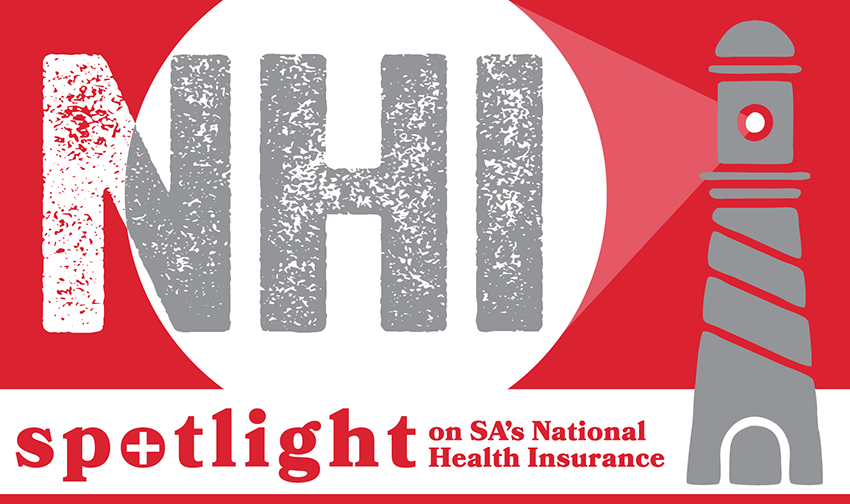In 2015, United Nations member states signed the Sustainable Development Goals, committing to the achievement of key health and development targets by 2030. A central pillar of these efforts is the movement towards universal health coverage, which entails the progressive realisation of equitable access to quality healthcare, free at the point of use. In South Africa, our proposed universal health coverage system is named National Health Insurance (NHI).
NHI is to be implemented in a context of dismal economic fundamentals, but there is nevertheless considerable hope as extra value from our healthcare investments can be achieved irrespective of NHI. Ironically, achieving this value will require a regime of explicit disinvestments.
In this article, I reflect on some key economics issues in the existing public health system, the NHI proposal as a response to those issues, and how a system of explicit economic priority-setting offers the potential of maximising value within available resources.
Supply and demand
I will start with a basic analogy of supply and demand, which is perhaps a first step in understanding the economic functioning of a complex system. On the demand side, the South African health system faces a large and growing burden of disease. On the supply side, expectations regarding the productivity of health workers seem dangerously divorced from resource-constrained realities.
Over a seven-year period, I collaborated in a programme of work on primary care leadership and governance within two South African and one Kenyan setting. A common theme of experience from this work was the story of “unfunded mandates”. As reflected by one manager:
“Again in HR, when we look for HR approval, they kept on saying they don’t have money, and the service, irrespective of no money, no personnel, the MEC, the president wants that thing [guideline or policy] to be implemented with immediate effect.” How are healthcare facilities supposed to implement new guidelines with no new resources?
The impossibility of implementing the current load of guidelines and standards is clearly illustrated across the Annual Inspection Reports of the Office of Health Standards Compliance. In the most recent report, national average scores were 59% in hospitals, 50% in Community Health Centres and 47% in clinics; a score of 80% denotes compliance whereas a score below 40% denotes the need for “urgent intervention”. Of the 851 facilities inspected, 1% achieved a compliant score.
What does this tell us?
It is currently impossible to achieve National Core Standards.
Why?
There is too little money. When the approach towards policies and guidelines at the top of the system is aspirational, while the bottom is collapsing, the benefit of considering affordability within priority-setting cannot be underestimated.
Load shedding healthcare
As South Africans, we are familiar with the risk of system collapse within the context of Eskom. Similar to the public health system, in the case of Eskom, a key challenge was the mismatch between supply and demand. However, with Eskom, this mismatch was much more obvious and motivating — if the loads were managed incorrectly, the resultant blackout could mean months of darkness. Avoiding blackout meant load shedding, a set of efficiency and disinvestment measures designed to reduce the demand on the grid in order to avoid calamity.
I would argue that the public health system is similar to Eskom, where collapse has already happened within parts of the system, and the indicators are that it is imminent in others. The load that we are expecting the system to bear is simply too much.
It is within this context that we seek to achieve universal health coverage. How might this be possible? The answer lies within the specification of the health benefits package. Even the poorest country in the world can have universal health coverage.
So what exactly is a health benefits package?
In theory, it is something unbelievably technical and extremely detailed, defining care pathways, medicines and diagnostics for different conditions. Within the NHI, the benefits package is central to the success of the reform for a number of reasons.
First, in chapter 2 of the NHI Bill, the entitlements of the users of the NHI Fund are defined. These include knowing what is on the benefits package, receiving these services free at the point of care, referral to another provider if the service is unavailable, and if services are refused, to receive written reasons from the NHI Fund for this decision. This is an extremely powerful set of entitlements to equity across all jurisdictions.
How will these benefits be determined? According to the NHI Bill, the minister will establish a Benefits Advisory Committee, and the NHI Fund will set up a similar body called the Office of Health Products Procurement, with a number of potential areas of overlap.
The work of these bodies is absolutely crucial, because if we have committed to equitable access to the health benefits package, the only way to keep the lights on in the health system is to ensure that the package is affordable. And yet, there is nothing in the NHI Bill about spending within budget. Given the equity entitlements of users, and our tendency towards creating unrealistic national policies and guidelines, there is a huge concern that the fund will spend far in excess of the allocated budget, with potentially disastrous consequences.
So, what is the way forward?
We need to start taking affordability far more seriously in the way we manage our health system. Currently, there is a massive supply/demand mismatch, and we need urgently to work to align our expectations of our health system with what is achievable. We need to stop setting up our health workers for public failure.
To do this, we need to identify areas for load shedding (explicit disinvestment) and if I were in charge, I would start this process by mapping all the current clinical guidelines and rationalising care within them (for example, reducing follow-on diagnostics, changing visit schedules, task shifting to more cost-effective providers).
Well-established methods of economic evaluation and health technology assessment are available to achieve this, taking consideration of distributive as well as procedural justice.
What is currently lacking is the data, but I believe that the increasing availability of “Big Data” will allow us to implement mathematical programming algorithms to choose wisely across all of healthcare, and this might be possible sooner than we imagine.
The institutional architecture needed to achieve this is contained within the NHI Bill. What remains to be seen is whether we will be able to overcome the politics of aspiration. If we can do so, the data suggests we will gain far greater value from our current health systems investment.
But what if we don’t…? MC
Susan Cleary is Associate Professor at the Health Economics Unit, School of Public Health and Family Medicine, University of Cape Town.

This article was first published by Spotlight.




